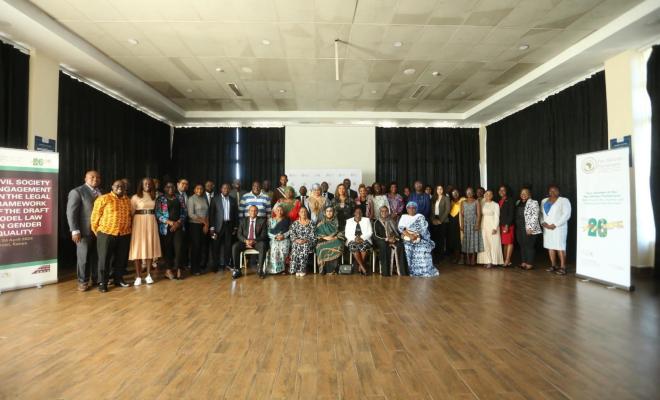The vision of the Egyptian ALF National Network is to promote cultural dialogue between Egypt and others in the Anna Lindh Network for Dialogue between Cultures and to be a platform for exchanging experiences and networking in the fields of development and rights within the framework of common human values based on international and national human rights standards.
The Egyptian Network now has 90 civil society member organisations from all over Egypt.
The Network is working on implementing several activities to improve the capacity building of its members, and to transfer the opportunities and experiences in the Anna Lindh Foundation to the members of the Egyptian Network.
The Partners for Transparency Foundation currently heads the Egyptian Network of the Anna Lindh Foundation. It was elected in November 2018.
148 Misr Helwan El-Zyrae Road, El Matbaa Sq, H. El Maadi, 11th Floor, No 112
Cairo
Egypt
The Egyptian Network has gone through seven phases:
The first phase:
Head of Network: Bibliotheca Alexandrina (2005-2012)
Ambassador Ali Maher, representative of the Bibliotheca Alexandrina assumed the presidency of the Egyptian Network and has carried out a number of activities such as an annual music festival in Alexandria that includes folk music bands from various Mediterranean countries.
The second phase:
Head of Network: Aion Masr Foundation (2012-2013) In 2012 the Bibliotheca Alexandrina announced its abandonment of the presidency of the network, and elections were organised in May 2012, and were won by the Aion Masr Foundation and its representative, Mustafa Abbas. After several months, early elections for the presidency of the Egyptian network were organised.
The third phase:
Head of Network: Maat for Peace, Development and Human Rights Foundation, first period (2013-2015) Headed by Ayman Okeil, several activities were carried out for members of the network, including the "Try to Talk" campaign, which sought to enhance the culture of dialogue and acceptance of the other by building capabilities and raising awareness of the importance of dialogue.
Fourth phase:
Head of Network: Maat for Peace, Development and Human Rights Foundation, second period (2015-2017)
Fifth phase:
Head of Network: Population and Development Services Association (transitional period 2017-2018)
After the Maat Foundation withdrew, the Association for Development and Population Services in Qena coordinated the activities of the Egyptian Network. A stalemate occurred in the network until new elections were organised in 2018.
Sixth phase:
Head of Network: Partners for Transparency (2018-2021)
Elections for the membership of the Board of Trustees and the presidency of the Egyptian Network were organised in November 2018, and the Partners for Transparency Foundation became head of network.
Merna Shalash is the national coordinator of the Egyptian Network
Seventh phase:
Head of Network: Partners for Transparency (2021-2024)
Merna Shalash, Head of Egyptian Network of Anna Lindh foundation
Main objectives of our network
- Encouraging members of the network to participate in the activities and proposals for cooperation launched by the Foundation.
Encourage cooperation and exchange of information among members within the framework of compliance with national laws
- Participate in defining and implementing the organization's activities at the national level within the framework of the organization's work and after fulfilling the national legal requirements
Implementation of all activities and programs of the Foundation in Egypt in accordance with Egyptian laws
- Enabling network members to participate in the training plans organized or coordinated by the institution.
- Facilitating the search for project partners for members of the networks as well as for other national networks seeking to establish partnerships with Egyptian institutions within the framework of the law.
- Promoting dialogue between peoples and cultural identities in the national identity, with particular attention to the Euro-Mediterranean region.
Strengths
-We in Egyptian network have NGOs from different governorates with different fields
fields of expertise
- Intercultural dialogue
- Human rights
- environment
- Gender
-SDGs
impact in the local community
Egypt makes its effort to promote the Intercultural Dialogue at the national level because it believes in the importance of it as a soft power. Egypt enjoys multiculturalism and it has many institutions that support cultural dialogue. and it provides all the support to the Foundation to enable it to play its vital role in bringing people together through dialogue on social, cultural and humanitarian issues.
